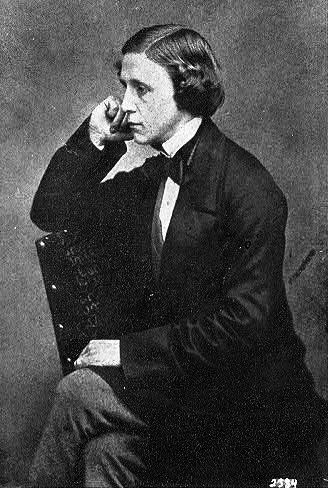- Hand —
- Red —
- Frustrated
Frustrated
Humpty Dumpty’s Recitation
In winter, when the fields are white,
I sing this song for your delight -
In spring, when woods are getting green,
I’ll try and tell you what I mean.
In summer, when the days are long,
Perhaps you’ll understand the song:
In autumn, when the leaves are brown,
Take pen and ink, and write it down.
I sent a message to the fish:
I told them ‘This is what I wish.’
The little fishes of the sea,
They sent an answer back to me.
The little fishes’ answer was
‘We cannot do it, Sir, because – ‘
I sent to them again to say
‘It will be better to obey.’
The fishes answered, with a grin,
‘Why, what a temper you are in!’
I told them once, I told them twice:
They would not listen to advice.
I took a kettle large and new,
Fit for the deed I had to do,
My heart went hop, my heart went thump:
I filled the kettle at the pump.
Then some one came to me and said
‘The little fishes are in bed.’
I said to him, I said it plain,
‘Then you must wake them up again.’
I said it very loud and clear:
I went and shouted in his ear.
But he was very stiff and proud:
He said ‘You needn’t shout so loud!’
And he was very proud and stiff:
He said ‘I’d go and wake them, if -’
I took a corkscrew from the shelf:
I went to wake them up myself.
And when I found the door was locked,
I pulled and pushed and kicked and knocked.
And when I found the door was shut
I tried to turn the handle, but -

Lewis Carroll
‘Humpty Dumpty’s Recitation’ is taken from Lewis Carroll’s book Through the Looking-Glass, the sequel to Alice’s Adventures in Wonderland—which was originally a story told to a child Alice Liddell by the Oxford maths don (real name Charles Dodgson, 1832-98) , before he turned it into a children’s book. Published in 1871, Through the Looking-Glass is a novel with a strong awareness of the ridiculous nature of social reality, especially from a child’s perspective.

